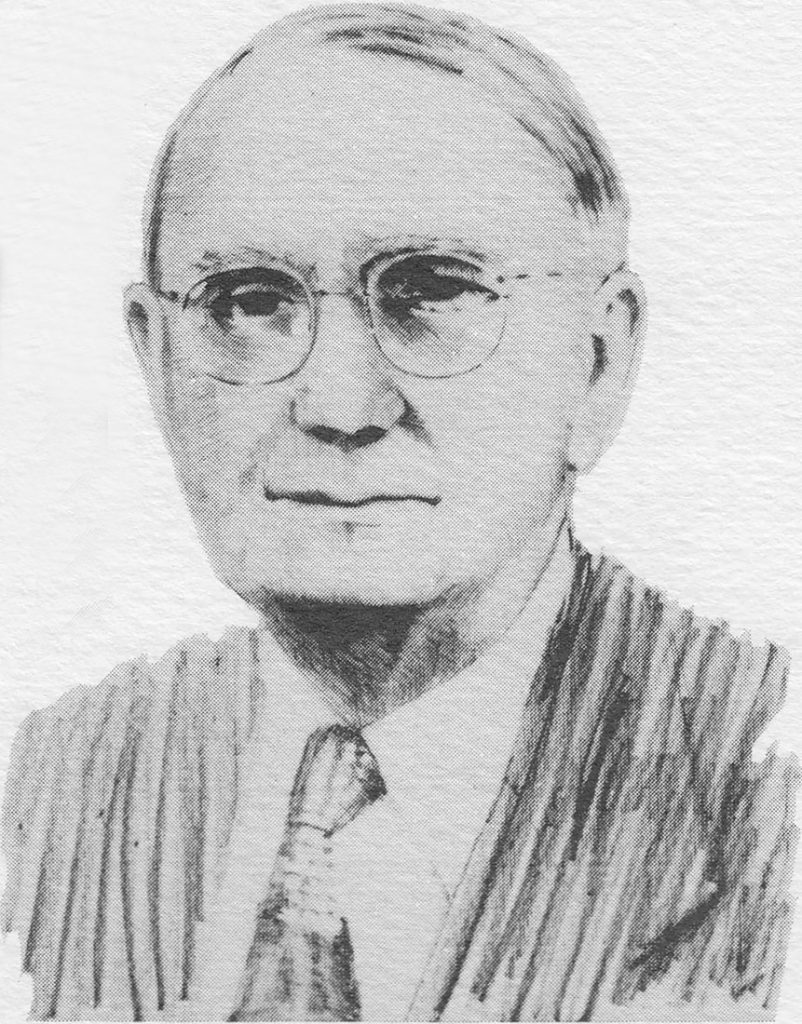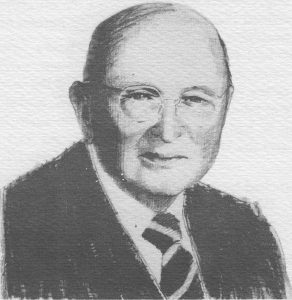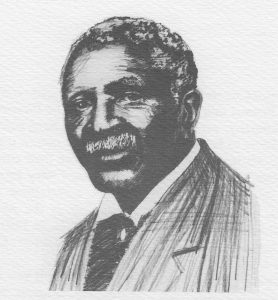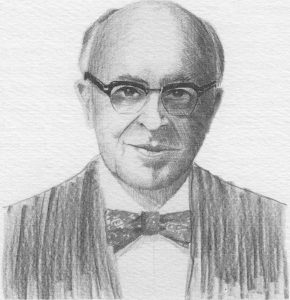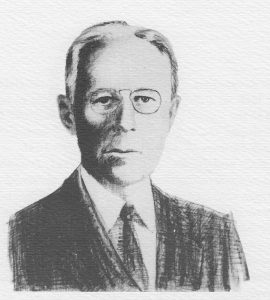John Barnett was always keenly aware of the South’s resources and potential for development.
Into a South besieged by the winds of change, John Bigham Barnett was born on February 1, 1874, to William H. Barnett and Eliza Cunning Barnett. One of five children, he spent his early years at Bon Aire, the family home place some twelve miles from Troy in Pike County, Alabama, where he did farm work and helped in ginning cotton. As a teenager, he taught school to secure enough funds to send himself to college. He attended Alabama Polytechnic Institute in Auburn and compiled an excellent record in his freshman year. At the beginning of his sophomore year, he returned home because of his mother’s terminal illness.
After his mother died, John Barnett began work as an insurance agent for his cousin Joe Dean of Opelika. Barnett’s impressive performance soon resulted in his transfer to the Louisville, Kentucky, office of Mr. Dean’s insurance firm.
In the fall of 1898, Barnett decided to continue his education and entered The University of Alabama to study law, where he became a member of the Order of Kappa Alpha and made many pleasant acquaintances. Two of his best friends were Miller Bonner and Thomas Wesley Martin. Barnett graduated from the university with a law degree in June 1900, and moved to Camden, Alabama, to join his friend, Sherwood Bonner, in the insurance business.
By early 1901, he had moved to Monroeville to establish a law practice. The county seat of Monroe County, Monroeville, was then a small town (population a little over five hundred) with no paved streets, no sidewalks, no street lamps, and only one brick building – the courthouse. After living in Monroeville a short time, he received a very flattering offer of a position in the insurance business in Hartford, Connecticut. Barnett went to Hartford, but soon returned to Monroeville because it was “a good land with good people.” His love and admiration of the people of Monroeville never changed, nor did his love for the good earth and the fertile lands which surrounded the town.
As he became engrossed in his law practice, Barnett soon realized that Monroeville and Monroe County, like much of the South in the early 1900s, suffered from an inadequate system of credit. Because the town and county had no banking facilities, and thus a shortage of money for loans, Barnett appealed to the British-American Mortgage Company to lend money to the farmers of the area. After the company’s agent assessed the situation, Barnett’s request was approved – he would be allowed to borrow any amount of money that he requested.
In 1904, Barnett organized the Monroe County Bank, the first official bank in the county. He became its first president, a position he held for forty-eight years. In January of 1952, he became chairman of the board, and his son, John Barnett, Jr., was elevated to the presidency.
After creating the bank in Monroeville, Barnett organized banks at Excel and Uriah. He later became president of the Escambia County Bank at Flomaton and of the Peoples Bank at Jones Mill (now Frisco City). As time passed and more and more roads were paved, the need for some of the smaller banks subsided and some of them were liquidated.
In addition to helping farmers receive loans necessary for survival, John Barnett established the J. B. Barnett Fertilizer Company, providing a ready source of cheap fertilizers to help farmers of the area boost crop yields in soil that had become nutrient-poor after many years of use.
In order to supplement his income until his law practice was well established, Barnett also turned to the field he knew best, insurance. He organized the first insurance agency in Monroe County, the Barnett Insurance Agency.
At about the same time, he made contact with Colonel Bertram Lesley Hibbard, a native of Virginia, who had moved to Alabama to practice law. He and Colonel Hibbard soon formed a partnership that lasted until Colonel Hibbard’s death in 1905.
Barnett also helped Monroe County solve the problem of transportation from Monroeville to other areas. The L & N Railroad from Selma to Flomaton had missed Monroeville by about four miles. When the Bear Creek Lumber Company went out of business in 1911, John Barnett and his law partner, L. J. Bugg bought the Manistee and Repton Railroad – originally built to serve the company – and extended the line from Monroeton to Monroeville. This extension linked Monroeville with transportation facilities to the outside world, and Monroeville experienced a new surge of growth. At about this time, Mr. Amasa Coleman Lee moved to Monroeville. He became a partner to Barnett and Bugg, thus making the law firm Barnett, Bugg, and Lee.
John Barnett continued to respond to the problems the farmers of Monroe County faced during the hard years of the 1920s and 1930s. He built a cotton warehouse where the farmers could store their cotton. Through this activity, he became very interested in the cotton warehouse associations, and in 1935 was elected president of the Alabama Bonded Warehouse Association. In 1950 he became president of the National Cotton Compress and Warehouse Association.
John Barnett was always keenly aware of the South’s resources and potential for development – adequate labor supply, raw materials (cotton) at hand for development, and by the 1930s an adequate transportation system. He and his friend from The University of Alabama days, Tom Martin, invited Vanity Fair Mills to locate at Monroeville. The illustrious history of the Vanity Fair enterprise in Monroe County reflects their endeavors.
Barnett’s contributions to the financial development of the “good land of the good people” he loved extended beyond business and financial enterprises. He was prominent in the Democratic Party; he served as mayor of his city; he held high office in the Masons; and he was a member of the Lions Club.
He chaired the Liberty Loan Drives of World War I and was chairman of the Victory Drives of World War II in his county; he served as Chairman of the Red Cross Drive. He served as President of the Alabama Bankers Association and was a member of the board of directors of the Birmingham Branch of the Federal Reserve Bank of Atlanta. He was very much involved in the educational affairs of his community and served the Methodist Church throughout his life.
John Barnett’s earthly life ended on February 16, 1952. He was an outstanding public servant, a lawyer, a banker, and a great Christian leader. He served his day and his generation exceedingly well.

